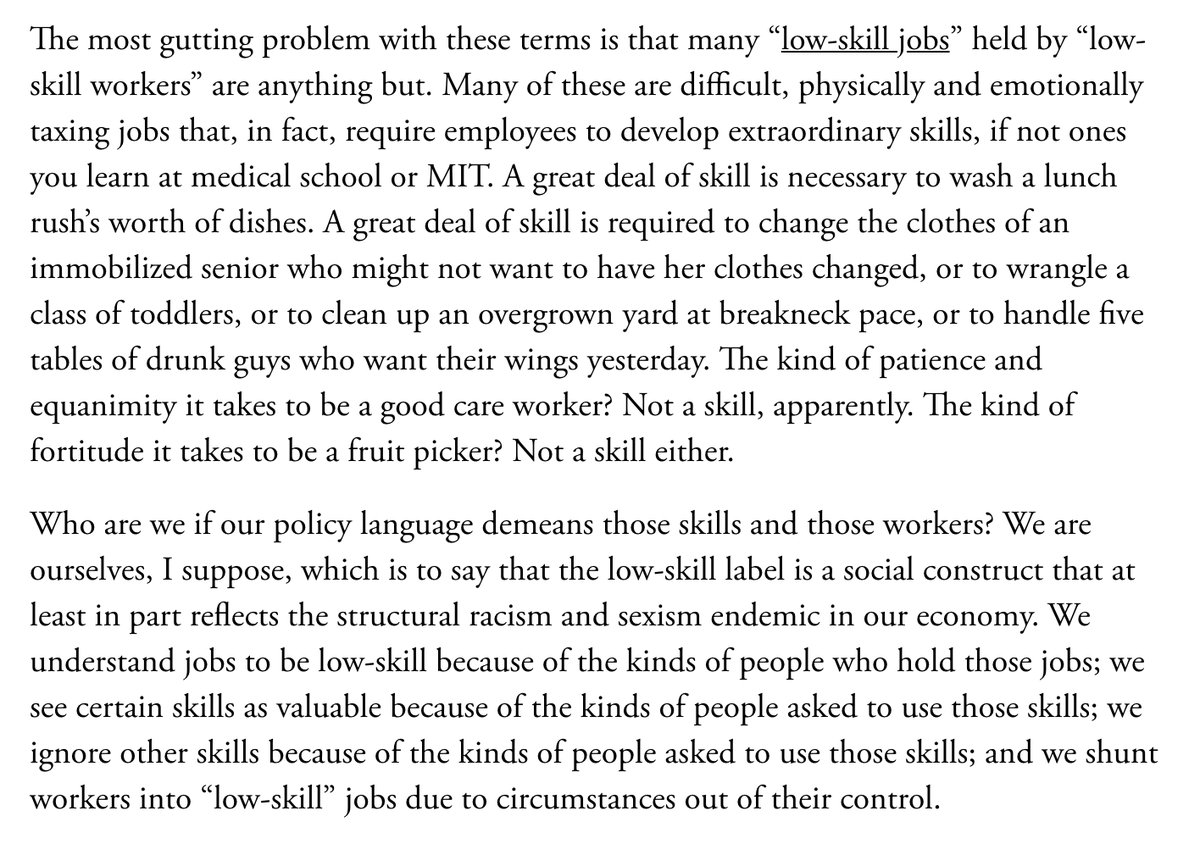
I liked this @jonathanchait piece on how the Congress's rules force the Congressional Budget Office to ignore the revenue from better IRS enforcement. But I'm also always caught on one thing here: nymag.com/intelligencer/…
As EVERYONE AT THE CBO WILL TELL YOU, they do not hold any ultimate power. They release reports. The reports are important exactly to the extent Congress listens to them. And this doesn't strike me as an example of a case where the CBO is the powerful actor.
Congress often ignores these reports. Lots of Republicans pretended to believe, or actually believed, the Trump tax cuts would pay for themselves.
Or Congress ignores the rule to offset spending. The Rescue Plan wasn't paid for, and the Jobs Plan pays for itself over 15 years.
Or Congress ignores the rule to offset spending. The Rescue Plan wasn't paid for, and the Jobs Plan pays for itself over 15 years.
CBO is sometimes powerful: During ACA, there was a debate about 1. How much it would cost and 2. How much payment reforms would save.
These were really complicated questions and so basically every Democrat in Congress agreed to take the CBO's estimates a best guess.
These were really complicated questions and so basically every Democrat in Congress agreed to take the CBO's estimates a best guess.
(CBO got this pretty wrong, by the way: ACA was much cheaper than they estimated.)
But I don't think IRS enforcement is like Obamacare. It's not a complicated issue. Members of Congress understand the mechanical way IRS enforcement raises money. And staffers can explain to their bosses why the scores don't show it.
It keeps not happening because members don't really want to do it. As Chait writes, IRS enforcement got a bad name because of a decades-long GOP campaign to smear the IRS. And lots of powerful people and interests don't want to be audited.
Anyway, it'd be good if this dumb rule directing CBO to ignore this money changed. But I'm not optimistic that would lead to political change. I think the politics of this are harder than they seem, which is why it keeps not happening, and no one changes the rule.
I suspect that it's easier to just raise taxes on rich people than boost IRS funding to strengthen enforcement. Most people know they are benefitting from the same loopholes hedge funders get. But they're a little scared of the IRS, and that makes enforcement easy to demagogue.
Also before my mentions fill with lovable pedants, I should say that the Joint Committee on Taxation scores tax cuts, not the CBO, so the Trump tax cuts is an example of Republicans ignoring budget scores, but not specifically ignoring CBO's scores.
• • •
Missing some Tweet in this thread? You can try to
force a refresh




